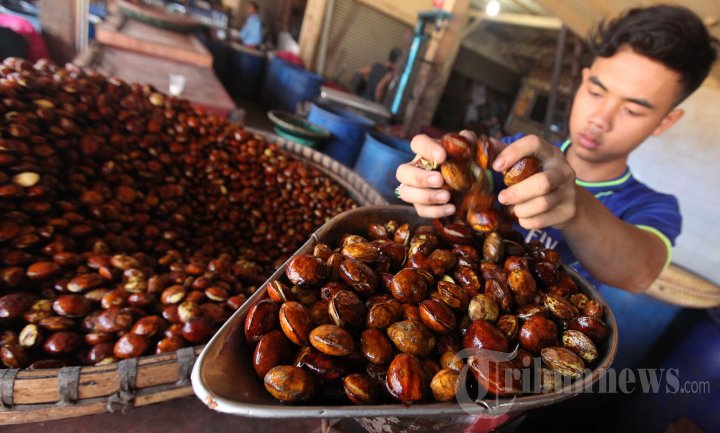
A trader weighs jengkol at Caringin Market, Soekarno Hatta, Street, in the West Java city of Bandung.
Bekasi, West Java, MINA – Several national and foreign small and medium enterprises (SMEs) will participate in the Indonesian Jengkol Festival to be held in Bekasi City, West Java, on March 23-25, 2018.
“We invite the local SMEs to produce jengkol-based food items from Kalimantan, Bandung, and Bekasi as well as some from Malaysia and Singapore,”Antara News reported, citing an Indonesian Jengkol Festival committee member Kamila here on Wednesday.
Jengkol`s latin name is Archidendron pauciflorum. It is commonly known as djenkol, jenkol, or jering, which is a species of a flowering tree from the pea family Fabaceae.
It is native to Southeast Asia, where the seeds are a popular dish. They are mainly consumed in Thailand, Malaysia, Burma, and Indonesia and prepared by frying, boiling, or roasting and are also eaten raw.
Also Read: Magnitude 6.9 Earthquake Rocks Southeast Maluku, No Tsunami Threat
According to Kamila, the event`s participants will present jengkol-based culinary delicacies, such as jengkol steak, jengkol burger, jengkol fantasia, jengkol crispy, jengkol rawon or Indonesian beef black soup, jengkol rendang or spicy meat dish, and jangkol meatballs.
The committee has prepared at least 150 kilograms of jengkol to be used by the participants to prepare a variety of dishes.
“Based on the experience of holding a similar event in Bogor, West Java, we used about 150 kilograms of jengkol. The quantity of jengkol will possibly increase this year, as the menu will also be more extensive,” she said.
Kamila noted that this year`s event will be held for the second time after the first one organized for three days in Bogor that attracted up to a thousand people daily.
Also Read: 46 Indonesian Hajj Pilgrims Still Hospitalized in Saudi Arabia
The festival will feature multi-product bazaars, seminars on health, entrepreneurship, cooking demonstrations, and art performances.
“This year`s festival is held under the theme of Jengkol Indonesia Festival by drawing inspiration from jengkol to celebrate the glory of Indonesian culinary arts,” Kamila remarked.
Although jengkol has a unique odor that not many can stand, it offers varied health benefits. According to several studies, jengkol is rich in carbohydrates; proteins; vitamins A, B, and C; phosphorus; calcium; alkaloids; essential oils; steroids; glycosides; tannins; and saponins. . (T/RS5/RS1)
Mi’raj Islamic News Agency (MINA)
Also Read: Hajj 2025 Medical Services Conclude, Fatalities Decline







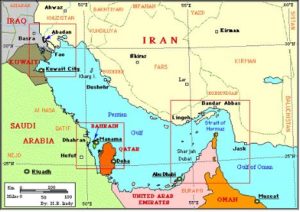




![Israeli tanks and APC’s gather by the Israeli – Lebanese border. Amid Israel’s escalating campaign against Hezbollah in Lebanon on September 30, 2024. [Erik Marmor/Getty Images]](https://en.minanews.net/wp-content/uploads/2024/10/IMG_20241001_203226-300x197.jpg)

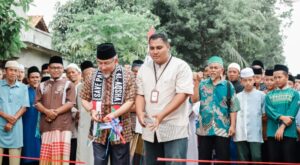
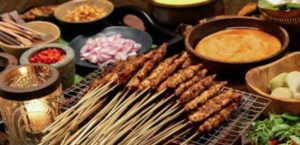
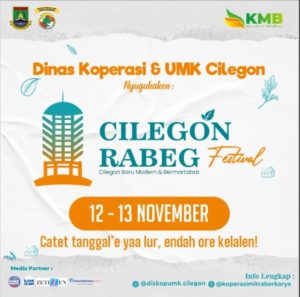

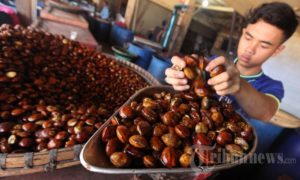















 Mina Indonesia
Mina Indonesia Mina Arabic
Mina Arabic